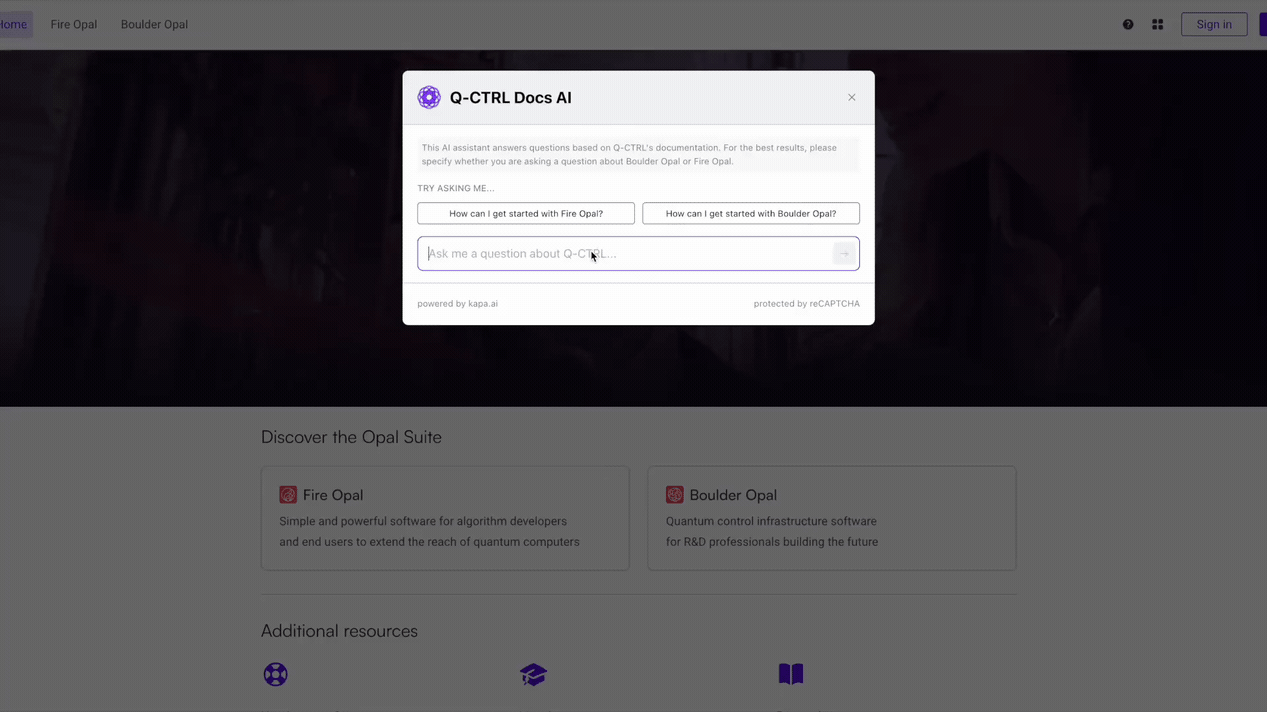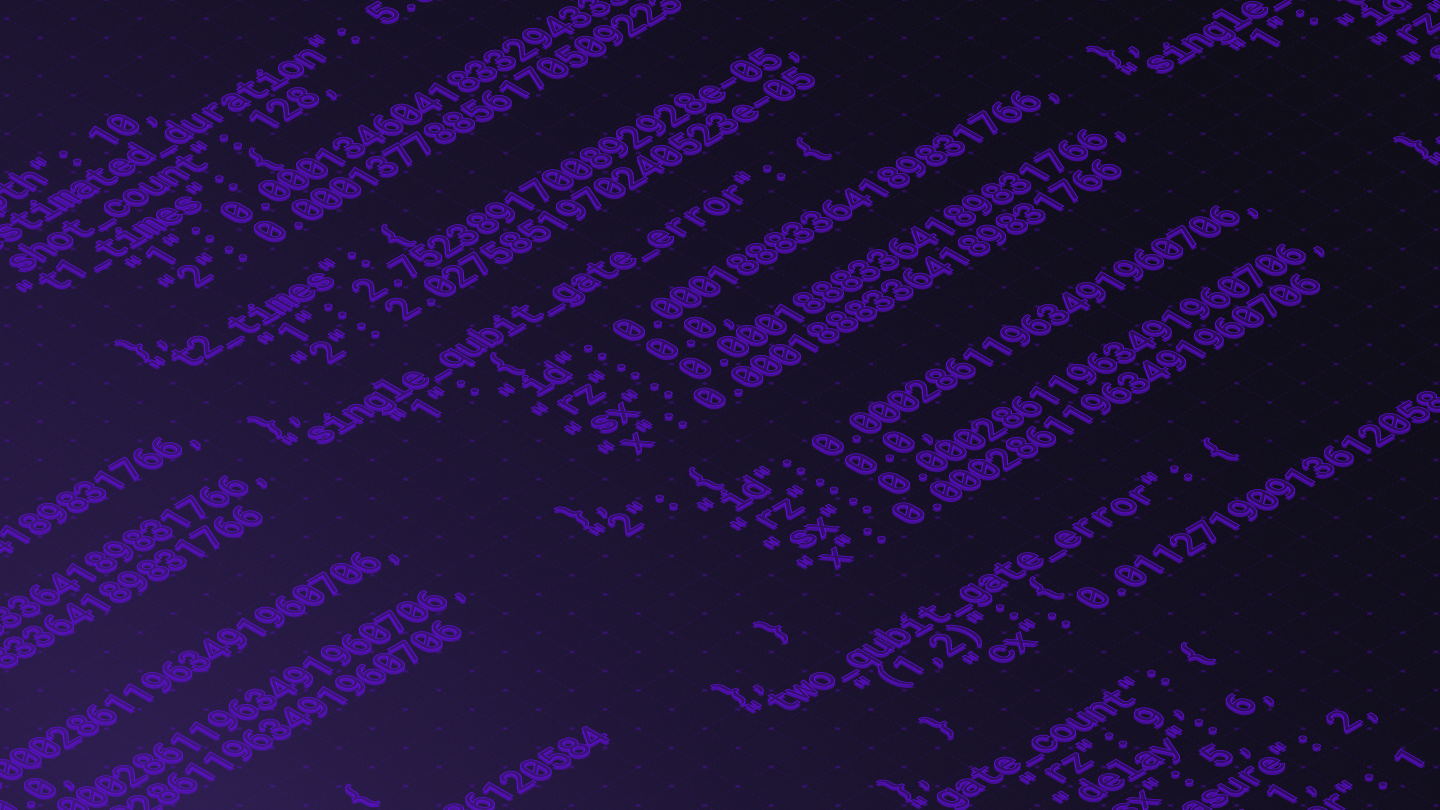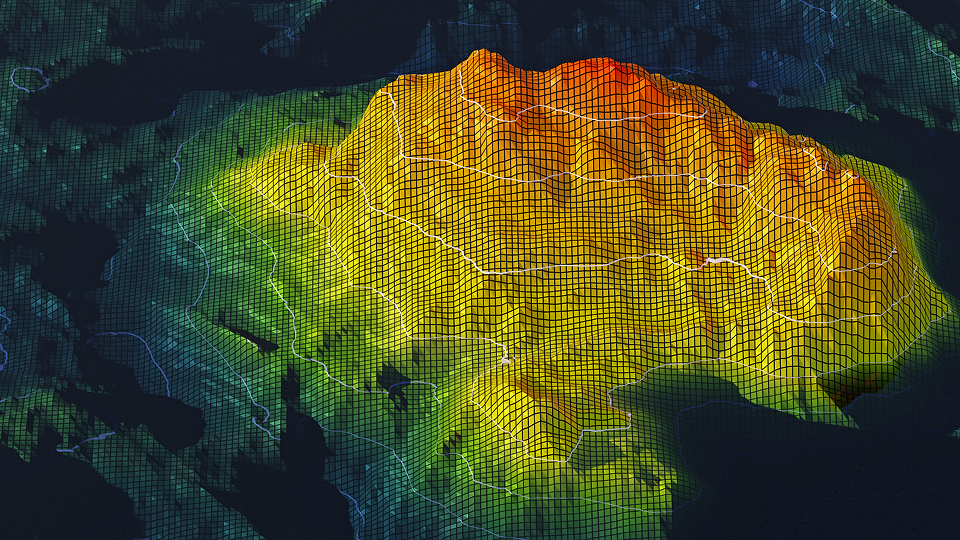Making quantum computing useful for everyone with AI assistance

Abstraction is one of the biggest challenges in quantum computing - we know it’s needed in order to deliver real value to a broader base of end-users, but achieving abstraction is extremely difficult when so much expertise is required to do almost anything in quantum computing.
At Q-CTRL we’ve focused extensively on the role that software abstraction can play in making quantum computing more useful, for instance, its key role in facilitating the integration of quantum computers into data centers. We’ve built highly technical solutions that capture our team’s expertise in quantum control and applied AI as intuitive products suited to a broad range of users: from experts in quantum control to end-users focused on applications.
But even with our abstraction layers, users couldn’t get away from writing and debugging the technical code needed to set their problems up in the first place.
Whether dealing with novel quantum-control-design problems, integrating closed-loop machine-language automation agents into hardware, or designing train-schedule optimization routines for real QC hardware, setting up the problem correctly introduced a lot of complexity for the user.
Until now.
We’re excited to introduce our new AI assistant for Q-CTRL’s core products, Fire Opal and Boulder Opal. Integrated in Q-CTRL’s docs page, and built in partnership with Kapa.ai, this new AI assistant makes it possible to build and solve incredibly complex quantum problems, including complete code generation, using only natural language prompts.
With the launch of our AI Assistant, we’re introducing a new level of abstraction for quantum software development that eliminates the need to search, interpret, and manually adapt documentation in the process of coding up your particular problem.
Instead of navigating complex APIs or digging through code examples, users can simply describe what they want to achieve in natural language and receive production-ready, quantum-computing-vendor-specific code implementing their exact problem. And because it is model agnostic, the AI assistant will choose the best performing model for each task, from OpenAI, Athropic, Cohere, Voyage, and more.
Now, quantum developers can focus on solving high-level problems rather than problem-setup and algorithmic-implementation details, dramatically accelerating development time, reducing cognitive load, and opening up access to advanced quantum workflows across any experience level. And R&D teams can focus on the physics of novel control-design and automation tasks, leaving controller interfacing and the nuances of data structures to the AI Assistant.
Developed with quantum domain expertise
Unlike generic AI assistants, ours is trained on Q-CTRL's extensive technical documentation, code examples, and research in quantum computing, which is enriched by our team’s expertise in real-world client use cases. We invested heavily in building comprehensive and authoritative documentation covering API references, worked examples, tutorials, code-based application examples, and general context.
The result is an AI assistant that actually works for code generation and retrieval of contextual information appropriate to your queries.
Use our AI Assistant as a tool to quickly get started or help strategically solve problems, from understanding which algorithms can be applied to high-level industry applications down to building and executing physics-heavy control-design problems for novel devices.
But more than anything, this AI assistant removes the friction associated with the details of running algorithms on real quantum hardware. The minutiae of interfacing with cloud quantum computers and varying syntaxes can be totally abstracted.
"I avoided [writing] my own code and asked it how to retrieve jobs, and also how to find the action IDs to retrieve jobs. Everything worked on the first try.
Nicely done. To plagiarize Staples, 'that was easy'." Brian Siegelwax, Quantum developer and author of The Quantum Dragon.
.gif)
Instant code-generation to unlock device performance
Our AI Assistant doesn't just offer code snippets; it learns from the documentation's rich, expert-crafted examples to generate and refine full quantum solutions tailored precisely for your unique problem, significantly reducing development time and potential errors.
The AI Assistant can act as a coding partner in your daily workflows – use it to easily generate code for your use case, then iteratively augment, tweak, and refine so the code captures your exact requirements. Then copy the resulting code right into your development environment.
Want to design a new quantum-logic operation without all the code preambles, exotic data structures, and mathematical setup? Easy.
Want to add real-world constraints like bandwidth limits on the gate design? Easy.
Want to adapt examples to the details of your specific quantum hardware? Easy.
Natural language prompts unlock it all.
.jpg)
International translation support to empower developers anywhere
For our growing user base, our AI Assistant supports international translation of our documentation, making Boulder Opal and Fire Opal more accessible to the global developer community.
Users simply need to prompt the AI Assistant with questions in their preferred language. In response, the assistant will parse through all of Q-CTRL’s technical documentation to produce relevant answers and quickly reply in the same language as the original question.
Seamlessly work in Japanese, Korean, French, Spanish, and a host of other languages.

The path to quantum advantage is AI-powered and software-led
We are quickly approaching the era of quantum advantage, and Q-CTRL is at the forefront of this shift. Our software has enabled five world records in quantum computing, from the largest-ever entangled state generation to the most complex constrained optimization problem ever successfully run.
Now our AI Assistant brings you closer to quantum advantage by accelerating your quantum development workflows and providing instant, technical guidance and code to run on Boulder Opal and Fire Opal.
The AI Assistant is available to everyone for free and currently supports Boulder Opal and Fire Opal documentation. Boost your quantum development speed with our AI Assistant today by simply going to our documentation and clicking on “Ask AI” or get in touch with our team of experts to learn more.



